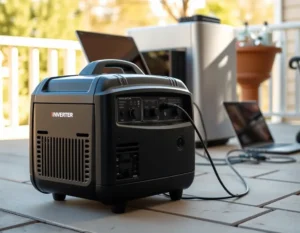
En el mundo moderno, donde la electricidad es fundamental para nuestras actividades diarias, las interrupciones eléctricas son un gran inconveniente, pueden afectar nuestra productividad y
¿Te has preguntado alguna vez por las bases teóricas que dictan el funcionamiento de instrumentos o herramientas como lo pueden ser los generadores eléctricos?
De ser ese el caso, déjame contarte que te encuentras en el lugar indicado. Aquí en JRH somos expertos en la fabricación y distribución de maquinarias como los generadores eléctricos, sumado a eso contamos con un amplio grupo de expertos que dominan el completo funcionamiento de éstas herramientas desde sus bases primarias.
Si estás interesado en adquirir un generador eléctrico para tu empresa o si por otro lado, deseas conocer más sobre los generadores eléctricos, puedes consultar con uno de nuestros asesores pulsando en el siguiente botón.
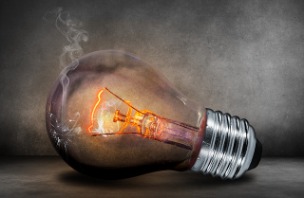
La «Ley de Faraday» se refiere a dos leyes fundamentales en el electromagnetismo que fueron formuladas por el científico británico Michael Faraday en la primera mitad del siglo XIX. Estas leyes describen la relación entre un campo magnético variable en el tiempo y la inducción electromagnética.
1. Primera Ley de Faraday: Esta ley establece que cuando un conductor o una bobina atraviesa un campo magnético variable, se induce una fuerza electromotriz (FEM) en el conductor. La magnitud de la FEM inducida es directamente proporcional a la velocidad de cambio del flujo magnético y se puede calcular mediante la fórmula:
FEM = -dΦ/dt
Donde FEM es la fuerza electromotriz inducida, dΦ/dt es la tasa de cambio del flujo magnético y el signo negativo indica que la FEM se opone al cambio en el flujo magnético.
2. Segunda Ley de Faraday o Ley de la Inducción de Faraday: Esta ley establece que la magnitud de la corriente inducida en un circuito cerrado es proporcional a la FEM inducida en el circuito y es inversamente proporcional a la resistencia del circuito. Se puede expresar mediante la fórmula:
I = FEM / R
Donde I es la corriente inducida, FEM es la fuerza electromotriz inducida y R es la resistencia del circuito.
Estas leyes son fundamentales para entender los principios de la generación de electricidad, los transformadores, las bobinas y muchos otros dispositivos y fenómenos relacionados con la electromagnetismo. La Ley de Faraday es una de las bases de la física electromagnética y ha tenido un impacto significativo en el desarrollo de tecnologías eléctricas y electrónicas.
Esta ley data su origen en 1831 por el científico inglés Michael Faraday, ley que sirvió de punto de partida para el posterior establecimiento de la relación de un campo magnético con un campo eléctrico. Gracias a esta ley fue posible obtener la fuerza electromotriz dada a la interacción de un campo magnético en un circuito eléctrico.
Para ser más precisos, esta ley se dio a conocer gracias a la realización de un experimento que consistía en un alambre aislado, el cual era enrollado alrededor de un tubo de cartón, simulando una bobina. Para posteriormente introducir un imán en el interior de dicha bobina, y de este modo registrar con un galvanómetro la fem inducida por el campo magnético producido por el imán al atravesar la espira.
A lo que se podría concluir que el campo magnético representado por el imán era equivalente al que podría ser producido con otra bobina al verse conectada con otra fuente de corriente.
Podríamos decir que la ley de Faraday ha tenido especial trascendencia en el campo de la física, dado a que se ha presentado como la base para la generación de energía eléctrica; a lo que podemos agregar su aportación a las bases de la ley de Lenz (Ley que se propone aplicar el principio de conservación de la energía a la inducción electromagnética).
En conclusión, mediante la ley de Faraday, este último tuvo la posibilidad de demostrar la relación entre campos magnéticos y campos eléctricos.
Ahora que ya sabemos en qué consiste la ley de Faraday, es importante indagar un poco más en sus aplicaciones fuera de la teoría, siendo algunas de ellas:
Aunque suene sorprendente, es un hecho que gracias a los hallazgos extraídos de los experimentos que llevó a cabo Michael Faraday, se pudo incursionar en la creación de una gran cantidad de herramientas e instrumentos gracias a la tecnología eléctrica. Siendo la creación de los generadores uno de sus más grandes logros.
Cómo ya te habrás podido dar cuenta, aquí en JRH no nos dedicamos únicamente a la distribución de este tipo de maquinarias. Sino que nos enfocamos de lleno en todo lo que este mundo comprende, y de permitirnos ser tu mano derecha en cualquiera de tus proyectos, tendrás la seguridad de que sabemos que hacer y cómo hacerlo.
Por otro lado, me gustaría presentarte una de nuestras más grandes innovaciones cuando de generadores hablamos, nos referimos al generador de Diesel. Esta herramienta es perfecta para todas las necesidades que pueda requerir tu hogar, negocio o empresa.
Si deseas conocer un poco más sobre esta herramienta, puedes consultarlo acá.

En el mundo moderno, donde la electricidad es fundamental para nuestras actividades diarias, las interrupciones eléctricas son un gran inconveniente, pueden afectar nuestra productividad y
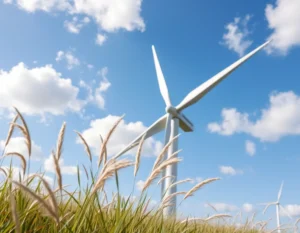
Las turbinas eólicas se han convertido en el emblema de la energía renovable, ofreciendo una solución sostenible y limpia frente a los combustibles fósiles. Sin
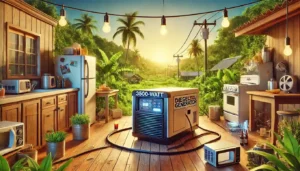
Cuando se trata de mantener la energía en situaciones de emergencia, durante viajes de campamento o en eventos al aire libre, un generador de 3500
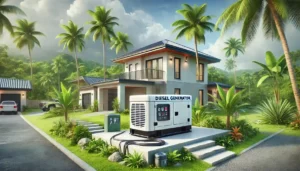
En tiempos de cortes de energía o desastres naturales, saber cómo usar un generador para alimentar una casa puede marcar la diferencia entre estar preparado
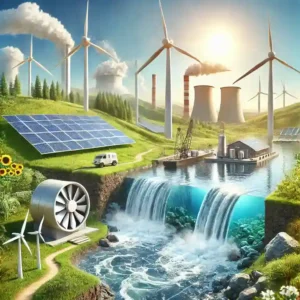
La búsqueda de energías alternativas se ha convertido en un pilar fundamental en la discusión sobre sostenibilidad y el futuro energético del planeta. Pero, ¿cuáles
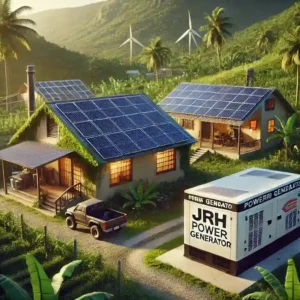
En un mundo donde la demanda de energía eléctrica sigue en aumento, las interrupciones de servicio y el costo creciente de la electricidad han impulsado